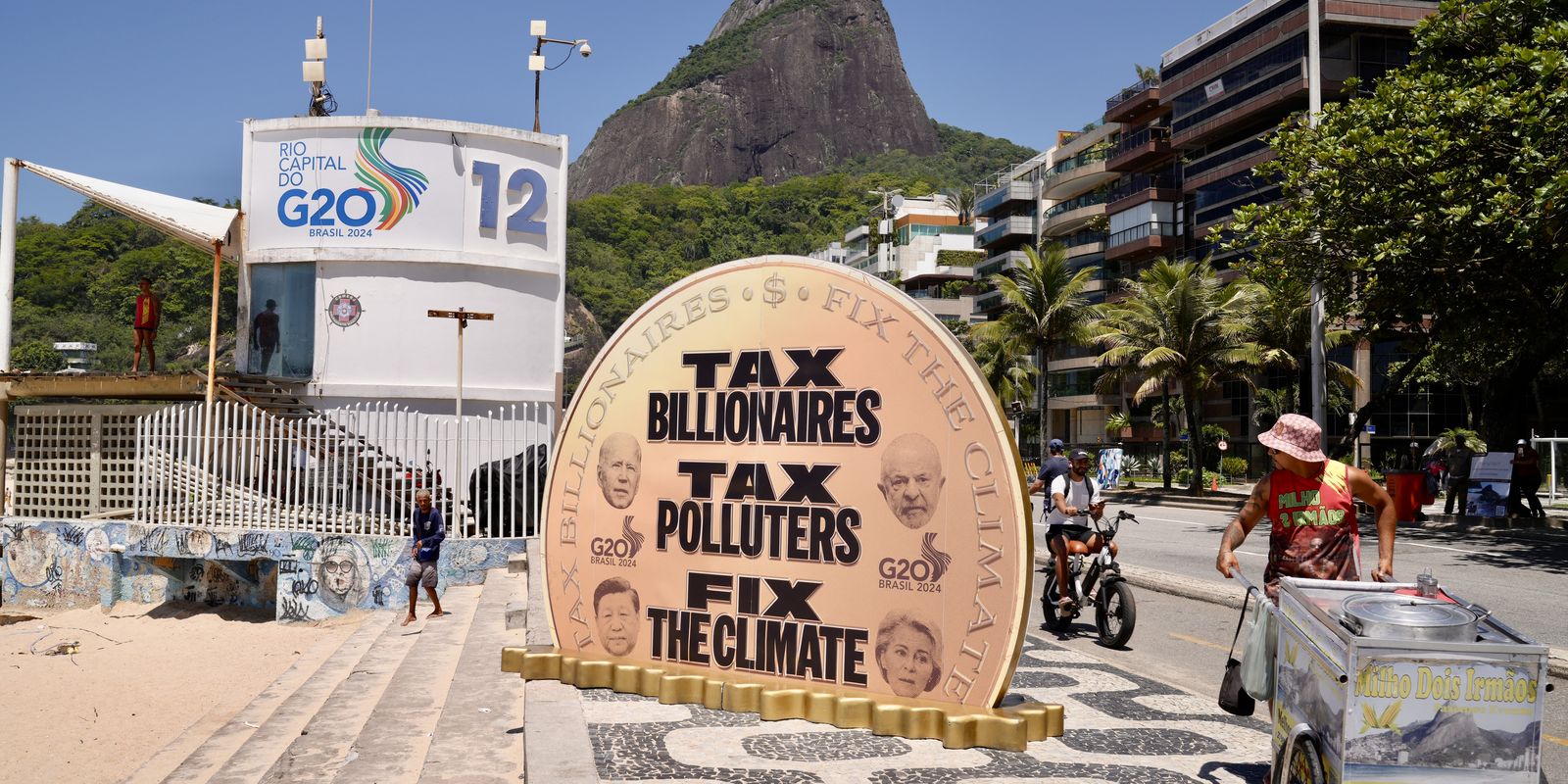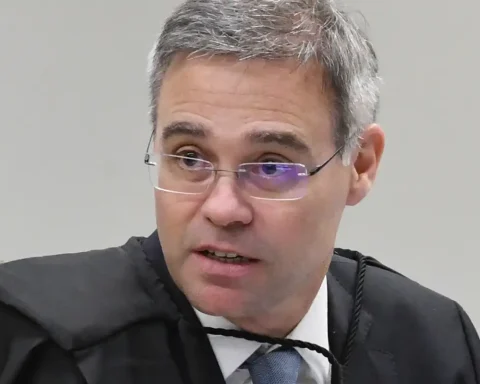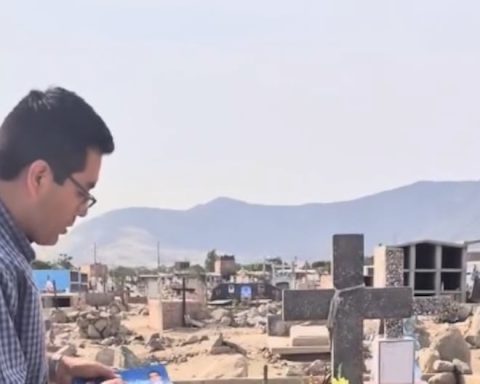Civil society organizations from the Climate Observatory network installed, on the morning of this Monday (18), a 3 meter high coin, in front of Posto 12, in Praia do Leblon, in Rio de Janeiro. The objective of the action is to pressure G20 countries to tax the super-rich and redirect the resources obtained to finance actions to combat the climate crisis. The protest takes place in parallel with the debates at the G20 Heads of State Summit, this Monday and Tuesday (19), under the rotating presidency of Brazil.
The so-called Group of 20 brings together the countries with the largest economies in the world, in addition to the European Union and, more recently, the African Union.
The Climate Observatory campaign proposes a 2% annual tax on the wealth of 3,000 billionaires to finance much of the climate adaptation needed by the most vulnerable populations on the planet, such as those in poor countries, forest people, riverside dwellers, favela residents and rural areas, which suffer from floods, droughts and extreme temperatures.
Civil society
According to the Climate Observatory, the G20 countries are responsible for around 80% of greenhouse gas (GHG) emissions, which cause global warming, and account for 80% of the global economy. Therefore, the Brazilian network of environmental entities supports the expansion of financing for climate actions by the biggest polluters.
According to these organizations, none of the G20 members can claim a lack of resources if they do not tax their billionaires progressively and, subsequently, allocate the amounts to promoting a fair energy transition.
The Institute Climainfo claims that G20 countries must signal more emphatically their real commitment to keeping the global climate agenda alive. Tica Minami, from Instituto Climainfo, explains that the world’s richest nations need to assume their responsibility for financing climate solutions. “The lack of agreement that imploded the Biodiversity COP, in Cali, Colombia, showed that the level of commitment from countries is still low, putting the multilateral climate agenda at risk,” recalled Tica Minami.
Marcel Aminato, Strategic Alliances coordinator at 350.org.an entity that advocates the end of the use of fossil fuels, such as coal and oil, and the promotion of renewable energies (hydro, solar, wind and biomass), argues that taxing billionaires is a fair and necessary measure to finance climate solutions urgent. “While the super-rich increase their wealth and collect less and less taxes, the planet overheats and millions of people pay a high price for it.”
The representative of the Management Board of the Institute of Socioeconomic Studies (Inesc), Nathalie Beghin, highlights that in addition to taxing the super-rich, cooperation between countries and transnational companies must combat illicit financial movements and tax havens. “International cooperation is needed to mobilize new, additional and debt-free public resources for climate finance, especially for countries in the Global South.”
Lucas Louback, member of the organization Wowa defender of climate, racial and gender justice, claims that it is not possible to advance in the fight against the climate crisis without facing inequality and the lack of tax justice that would increase the collection of taxes on large fortunes. “While a few accumulate fortunes and escape fair taxation, billions face the devastating impacts of climate change. It is unacceptable that countries and populations that contributed least to the crisis suffer the worst consequences.”
Brazil
The Brazilian presidency of the G20 also suggests the minimum tax of 2% on the income of the world’s billionaires, which would raise between US$200 billion and US$250 billion per year, to be a source of financing to combat inequality and combat climate change.
Taxing the super-rich to transform climate goals into concrete solutions, debated during the group’s Brazilian presidency, is considered the main proposal of President Luiz Inácio Lula da Silva’s government to be included in the final statement of the summit to be announced this Tuesday (19).
Taxation
The Climate Observatory act is part of the campaign RateOsBi to fill out the form sent to emails of global leaders with the proposal to tax 2% of the wealth of 3 thousand billionaires to finance actions to mitigate climate change.
Another similar initiative is the dossier Taxing Billionaireswhich highlights eight foreign and national billionaires as examples that taxing super-wealth could generate resources to face the consequences of global warming.

















